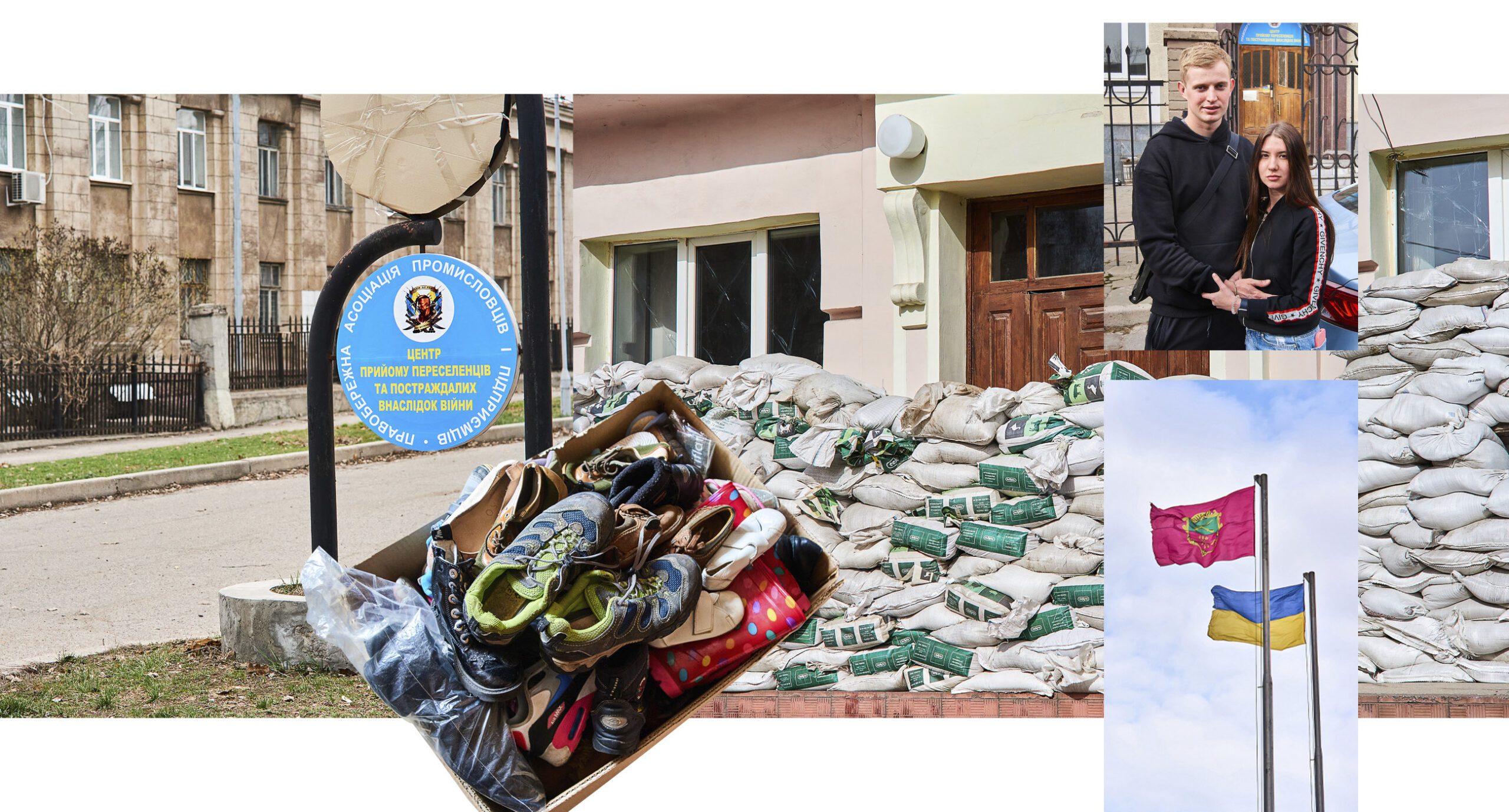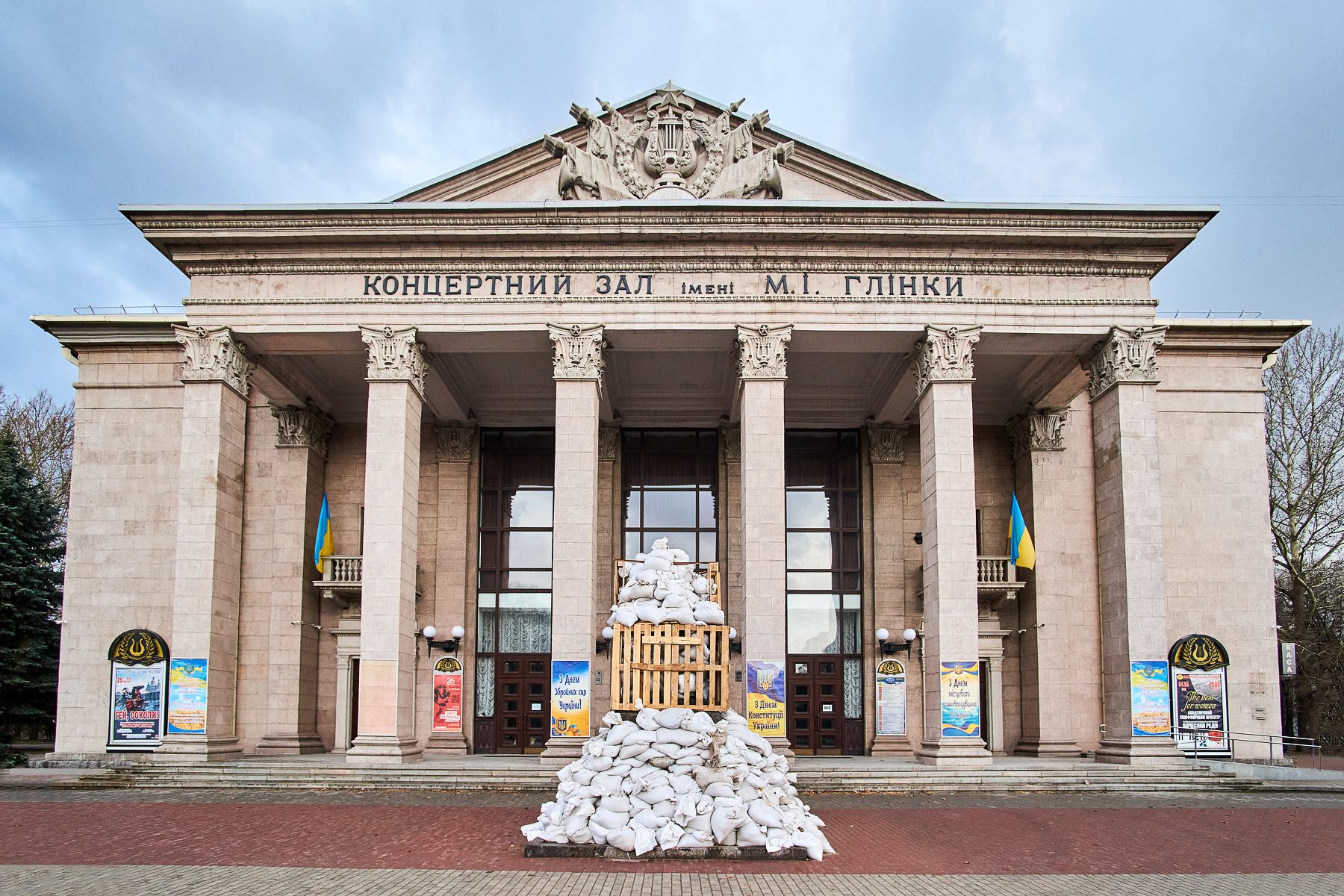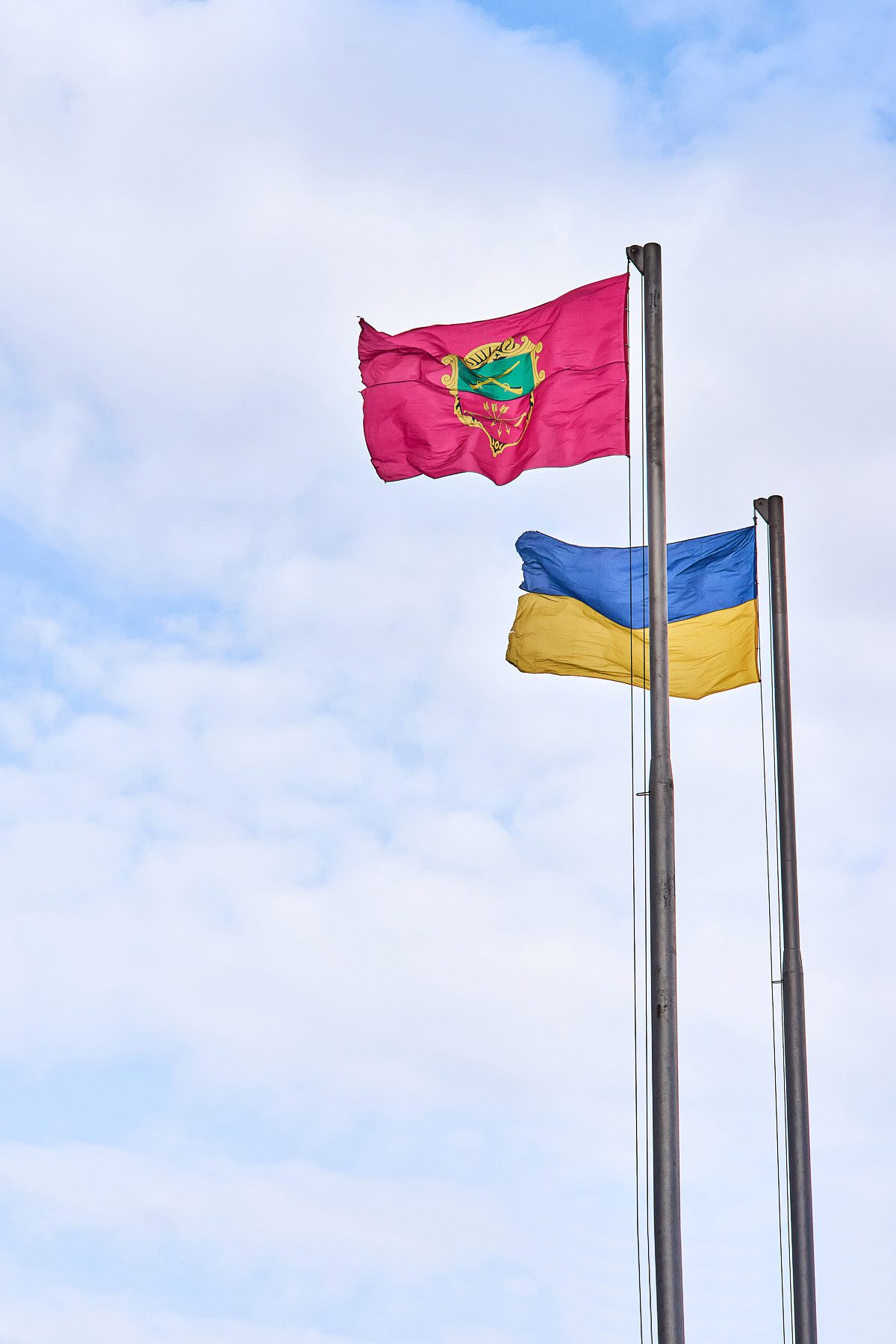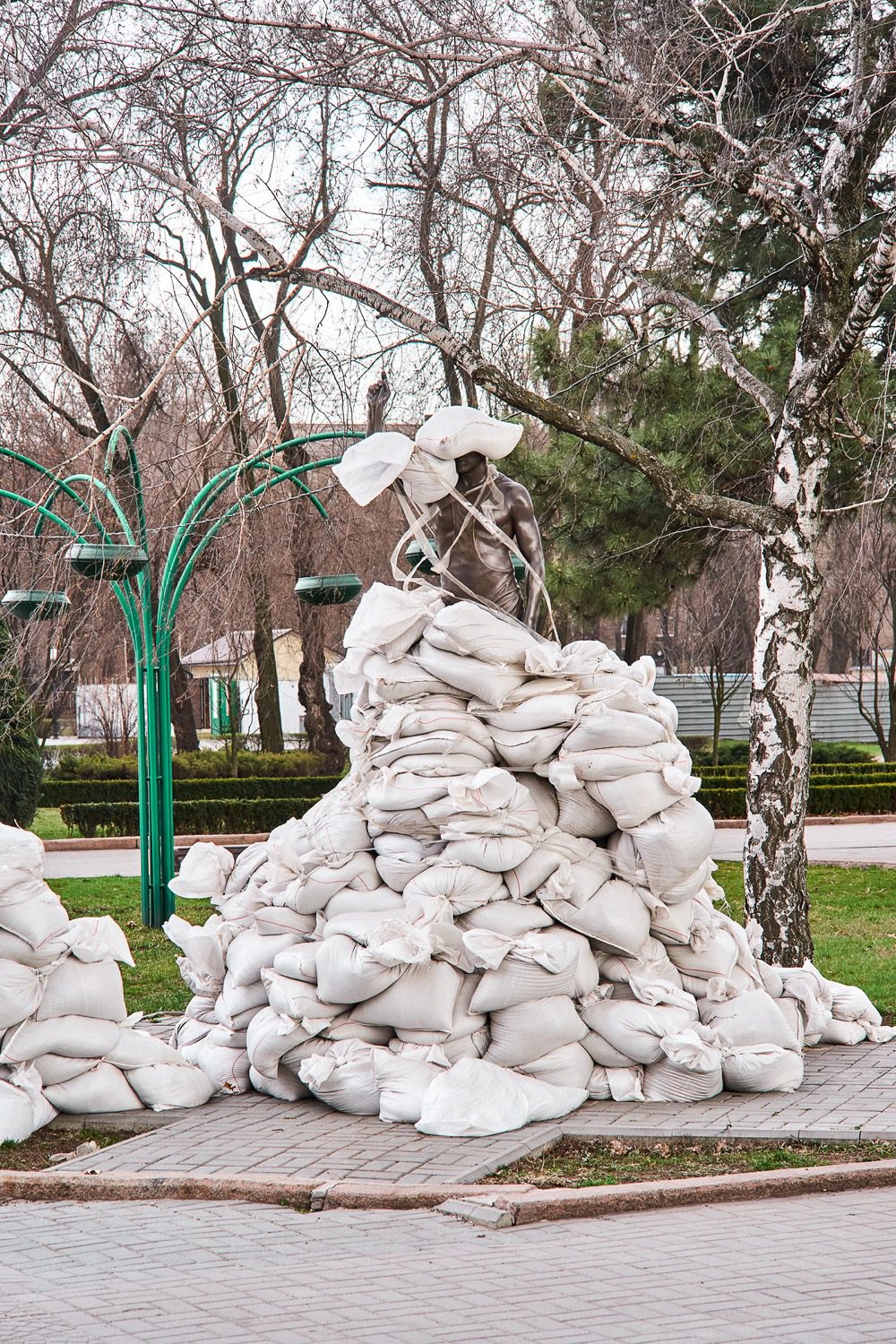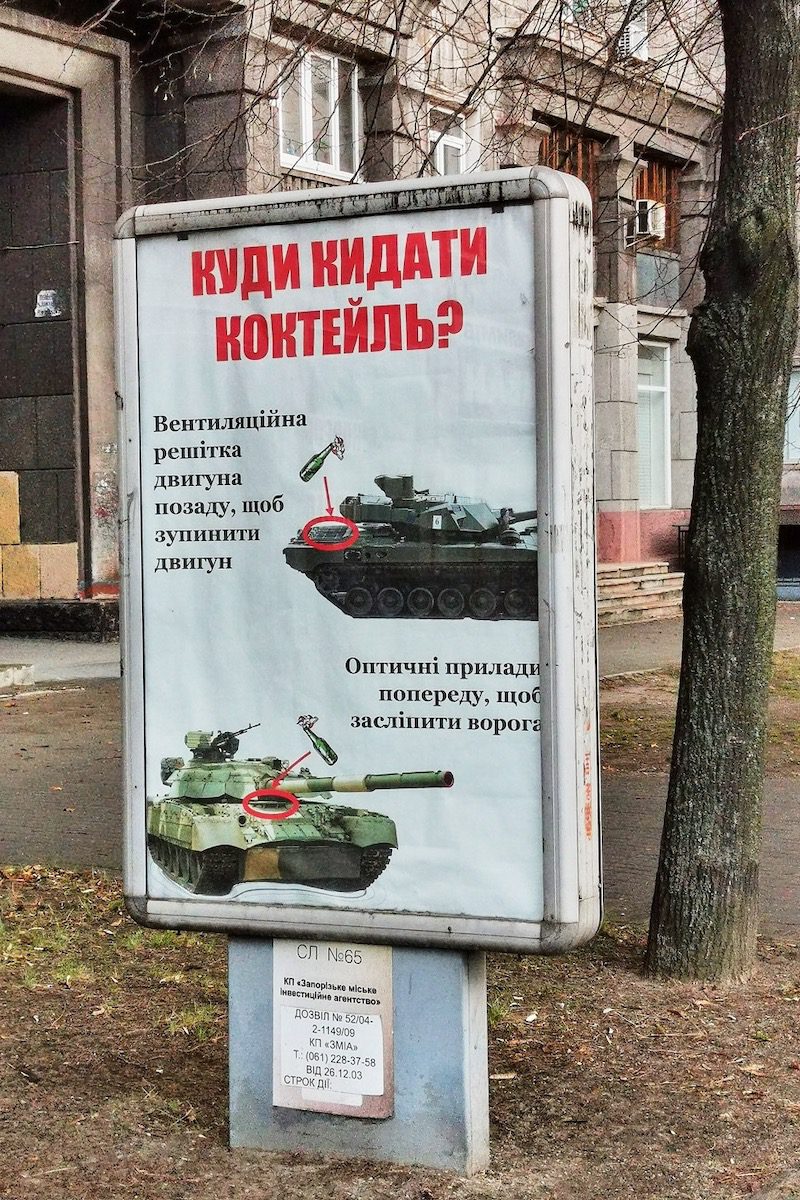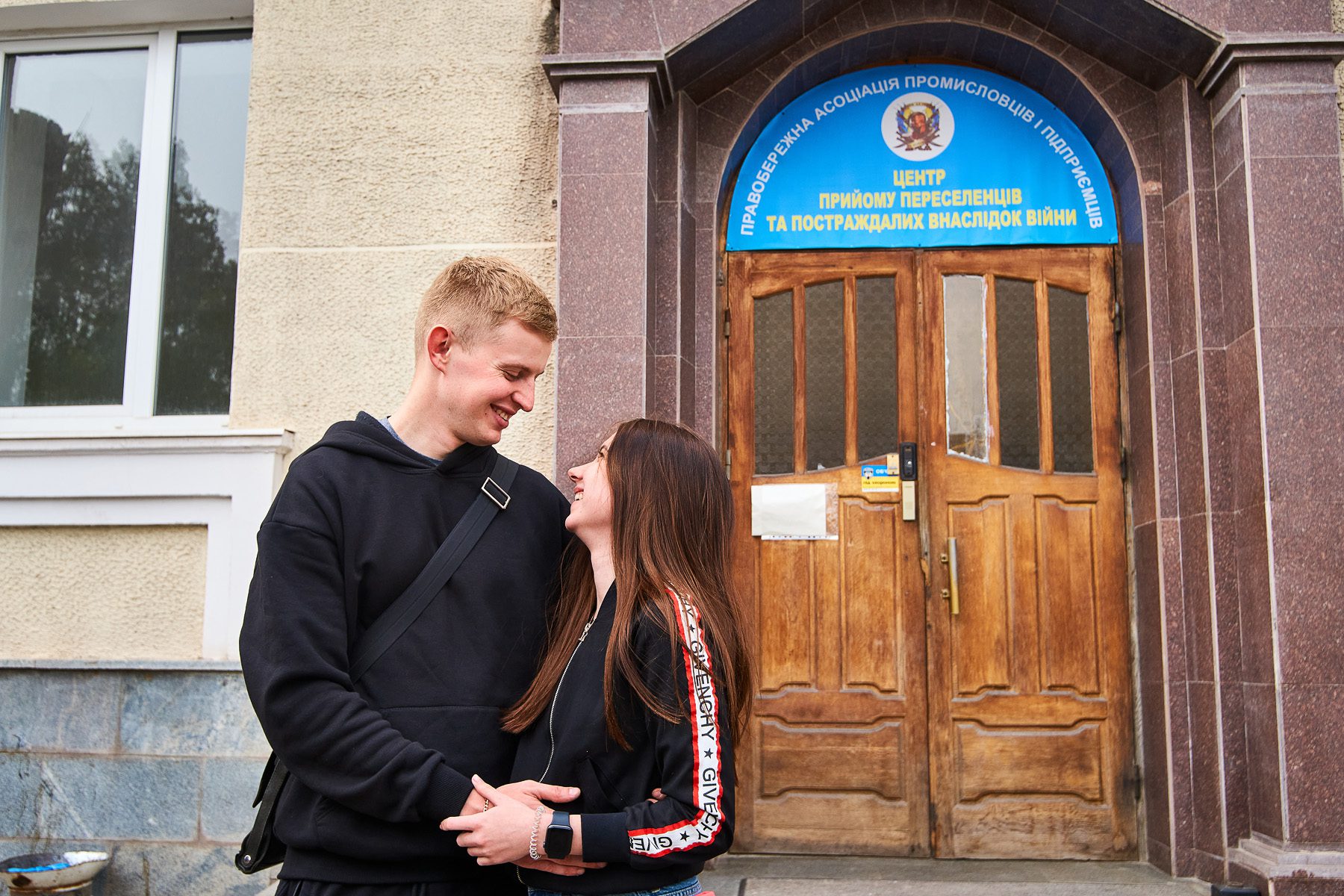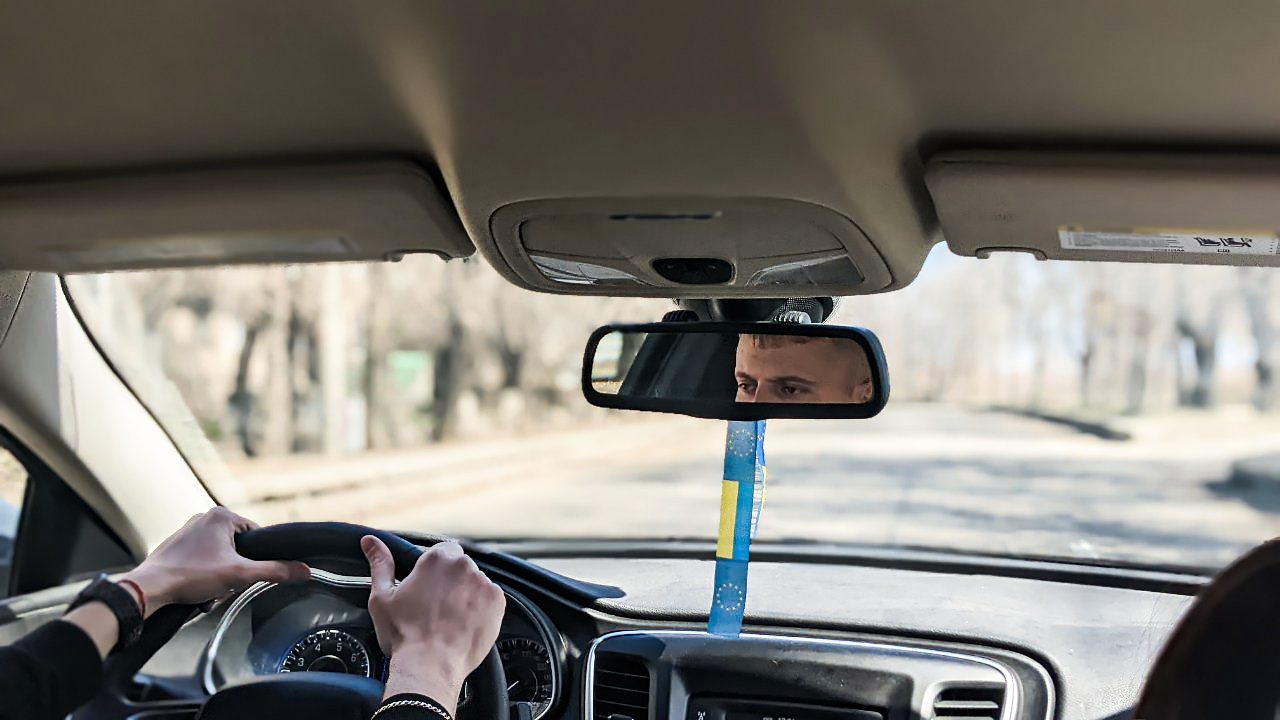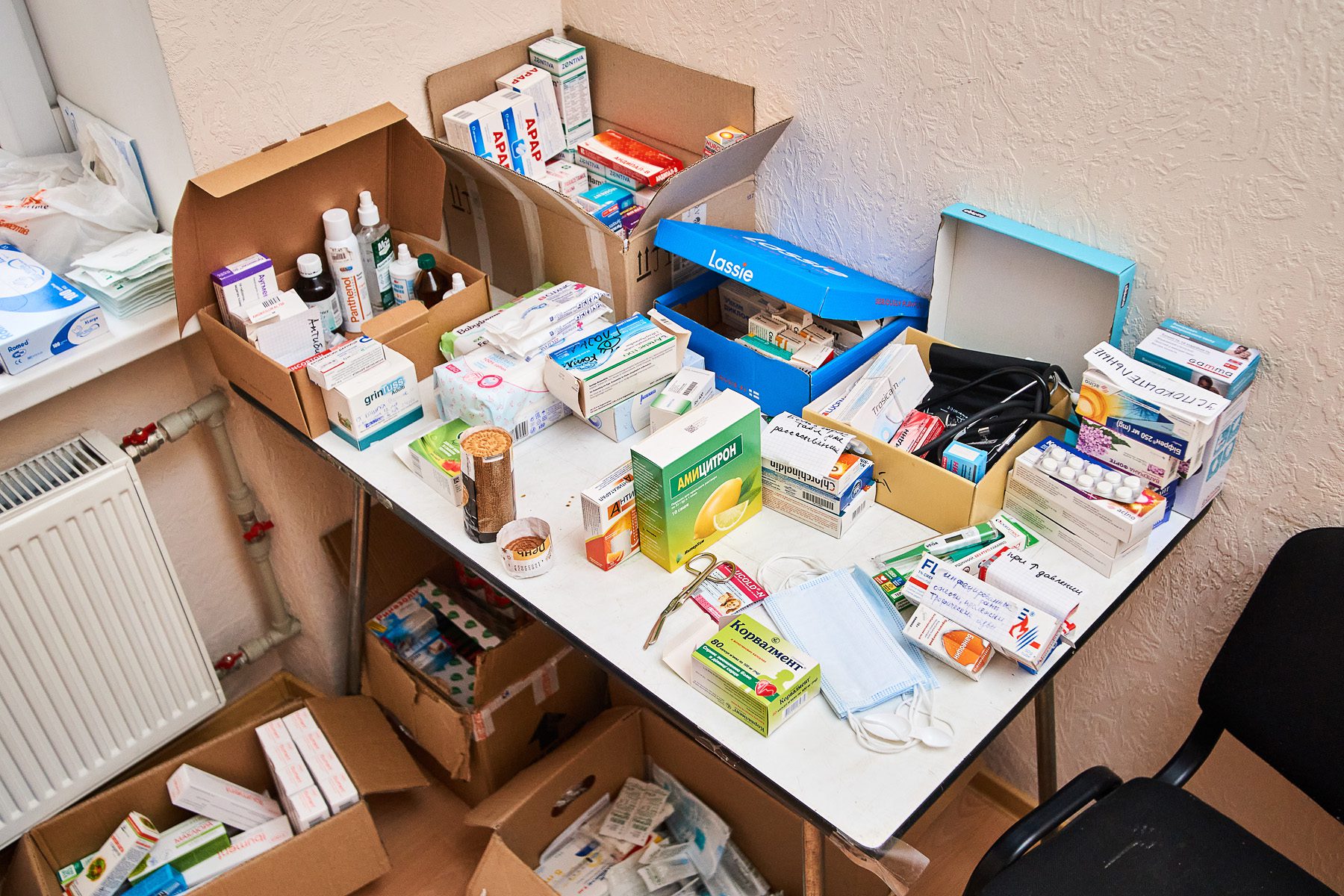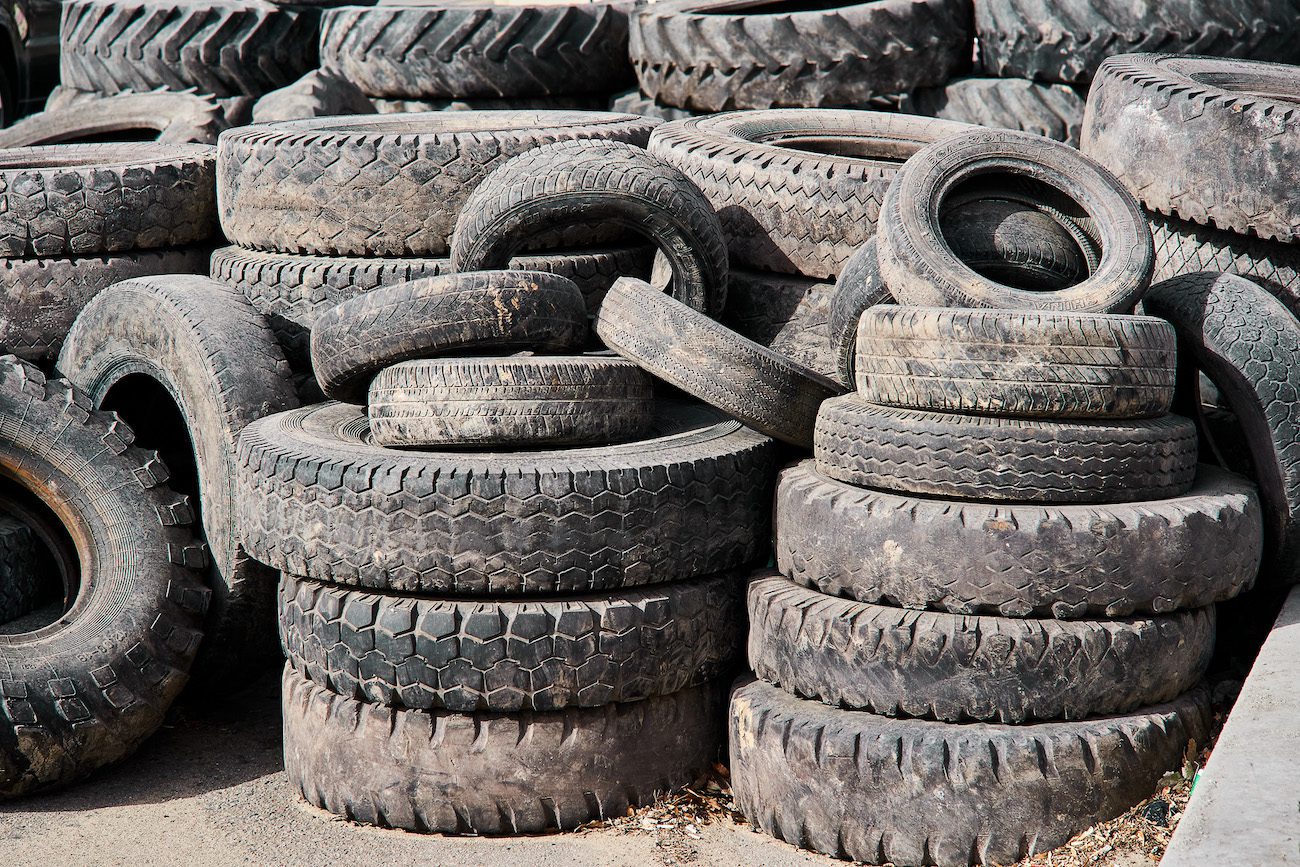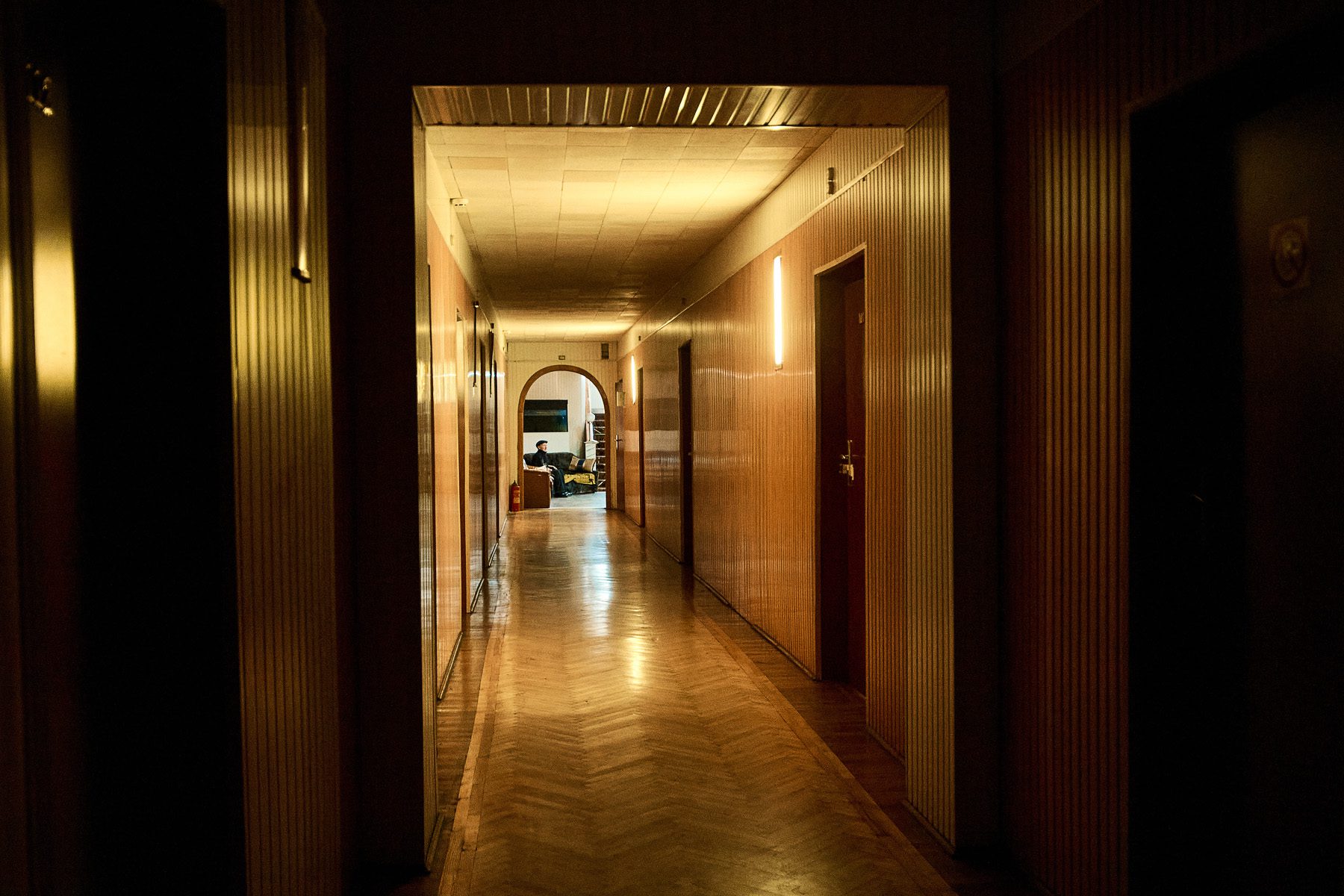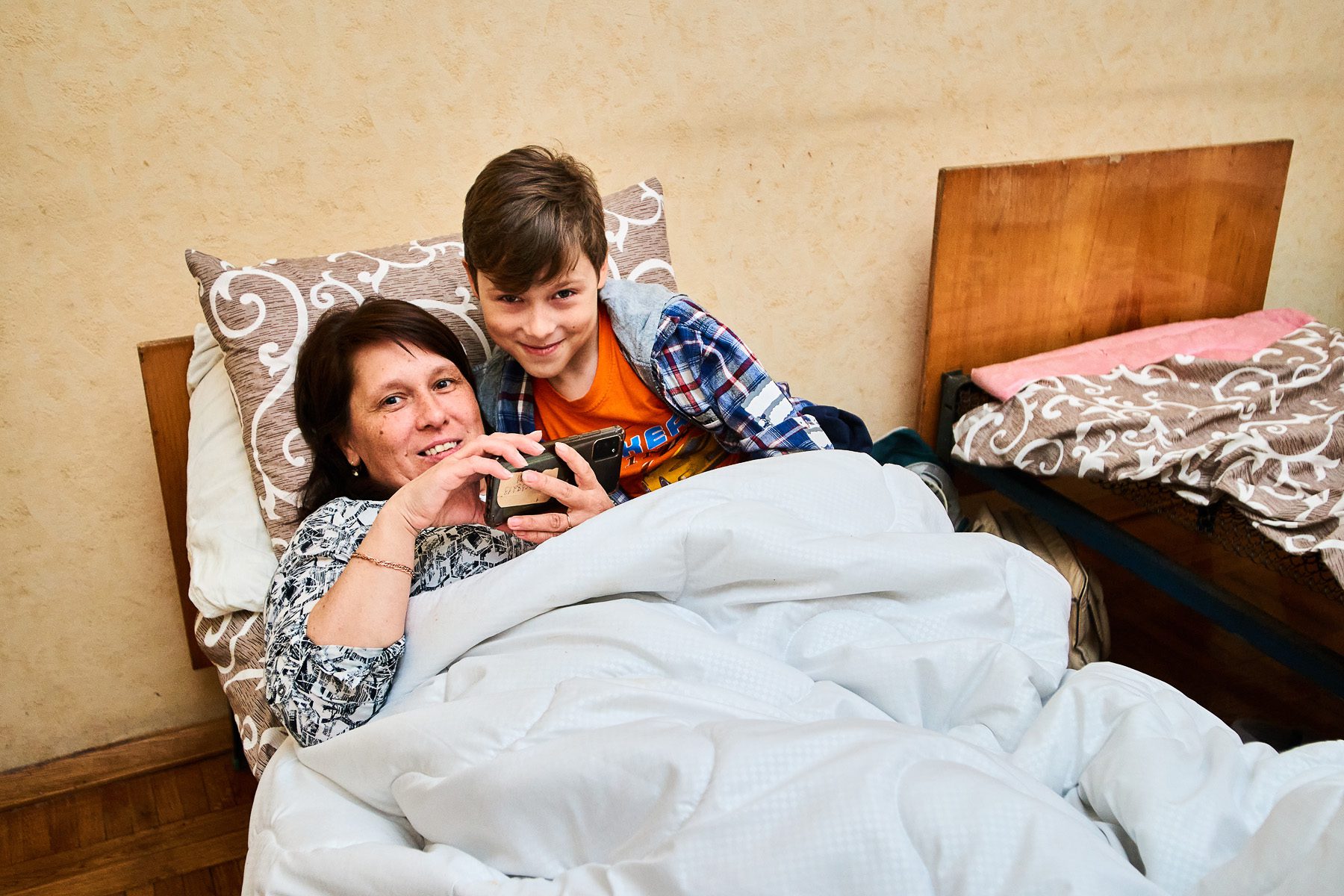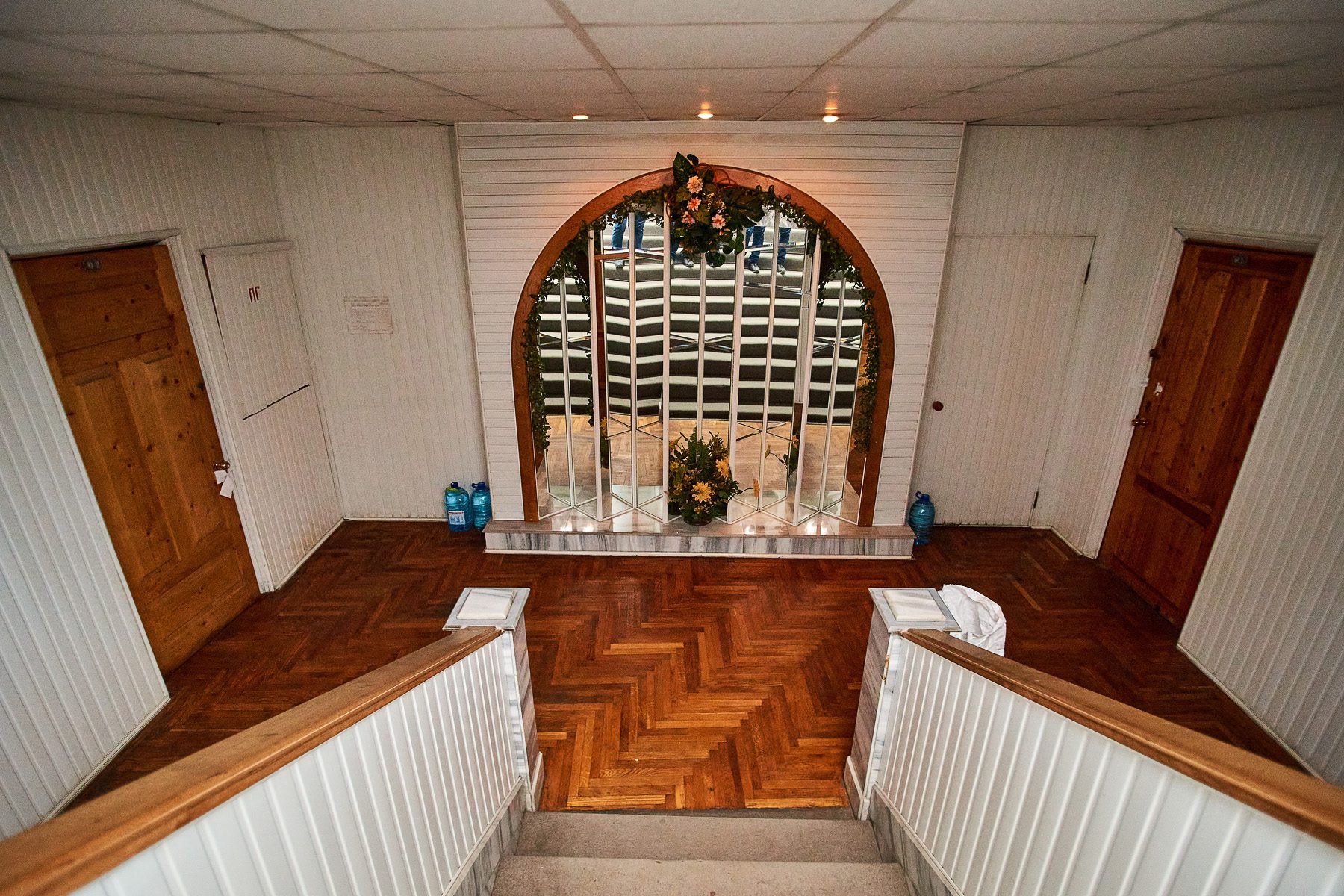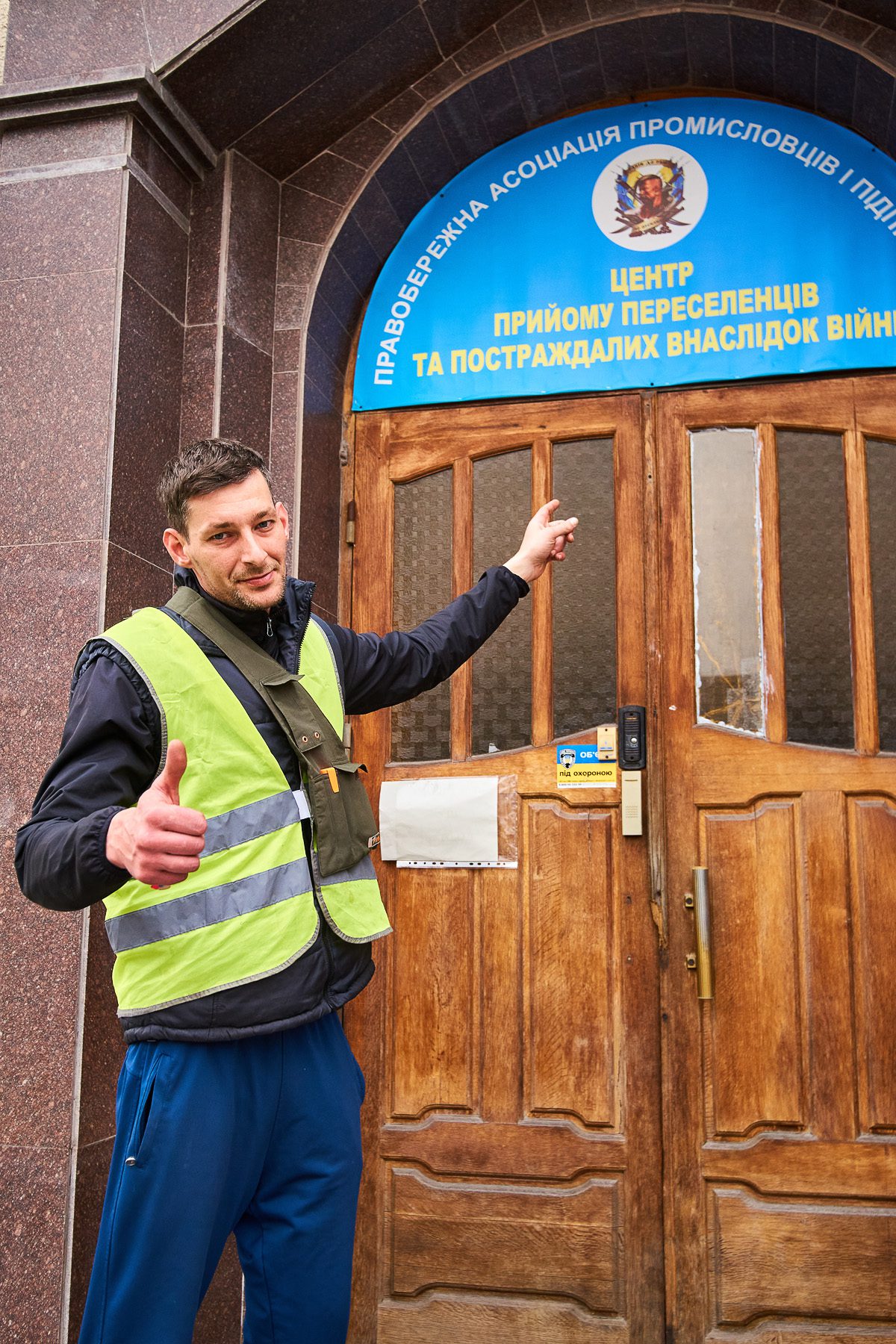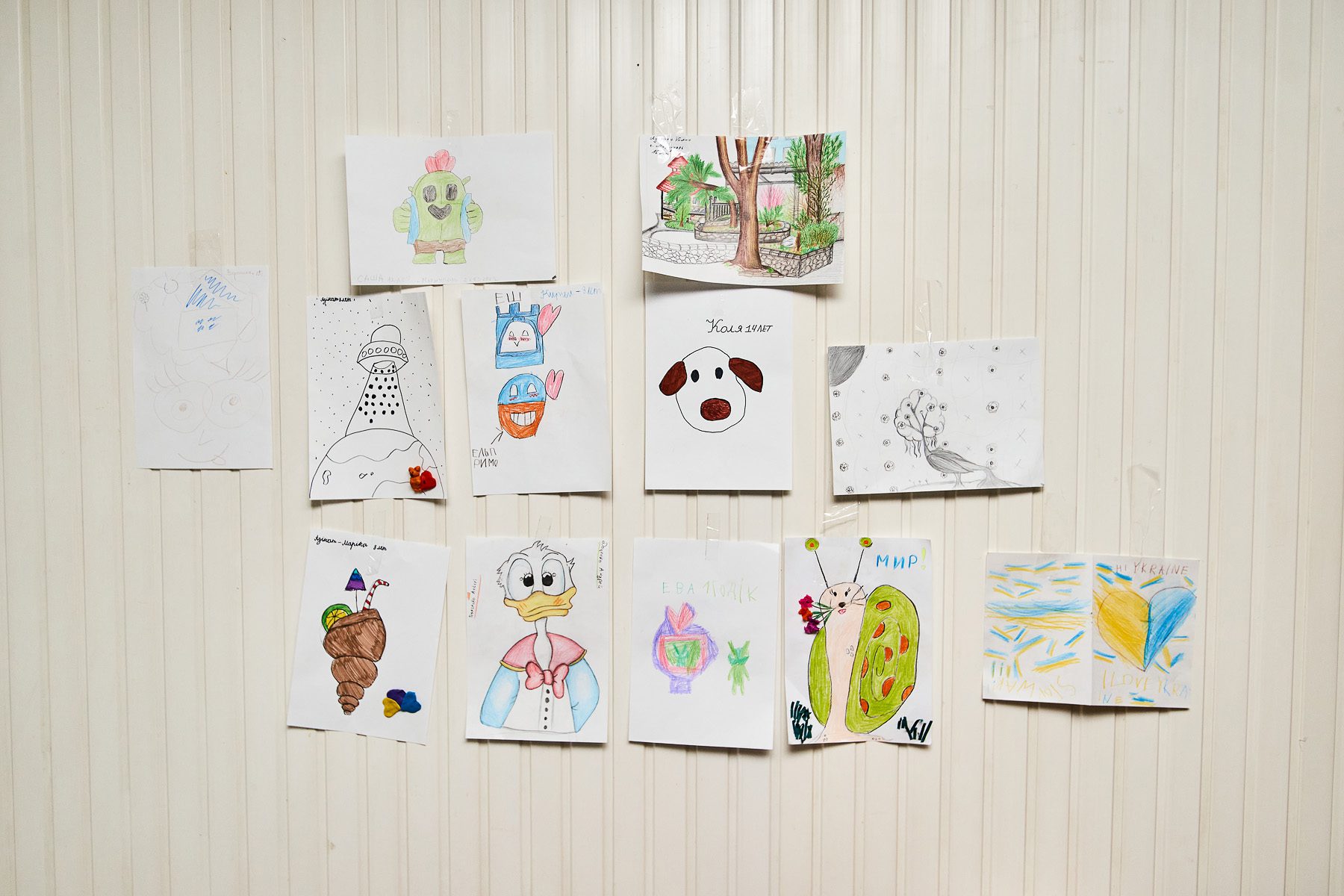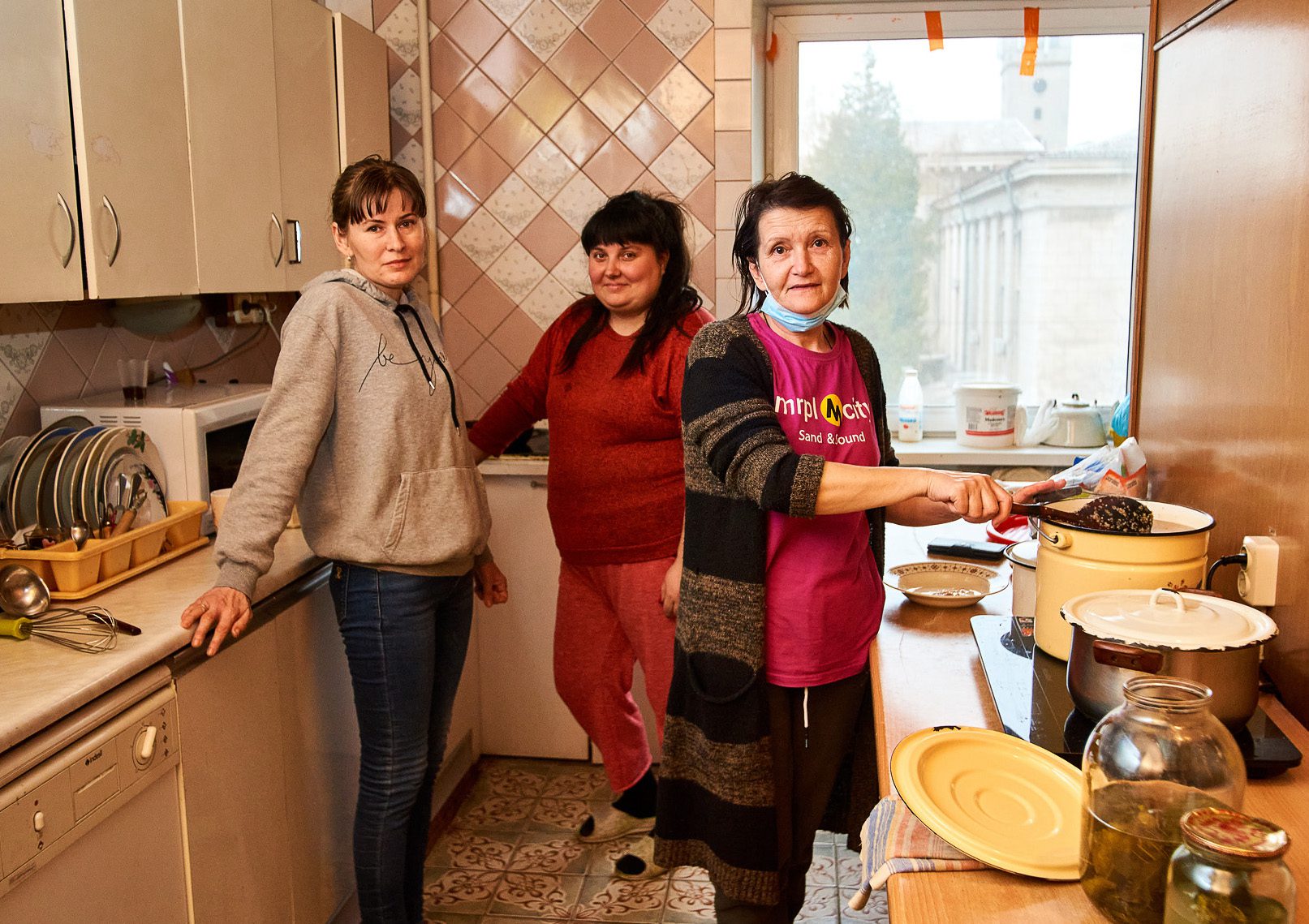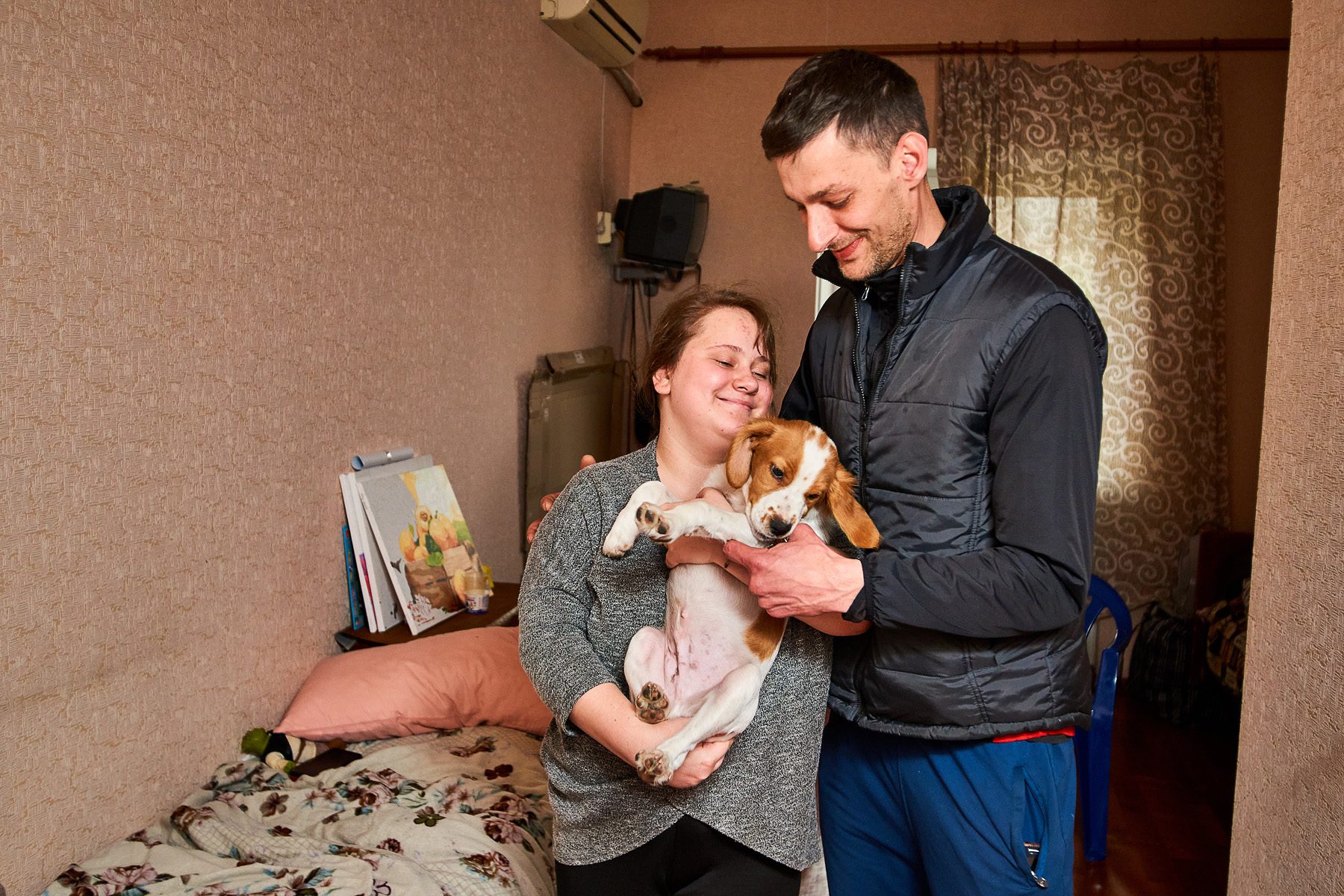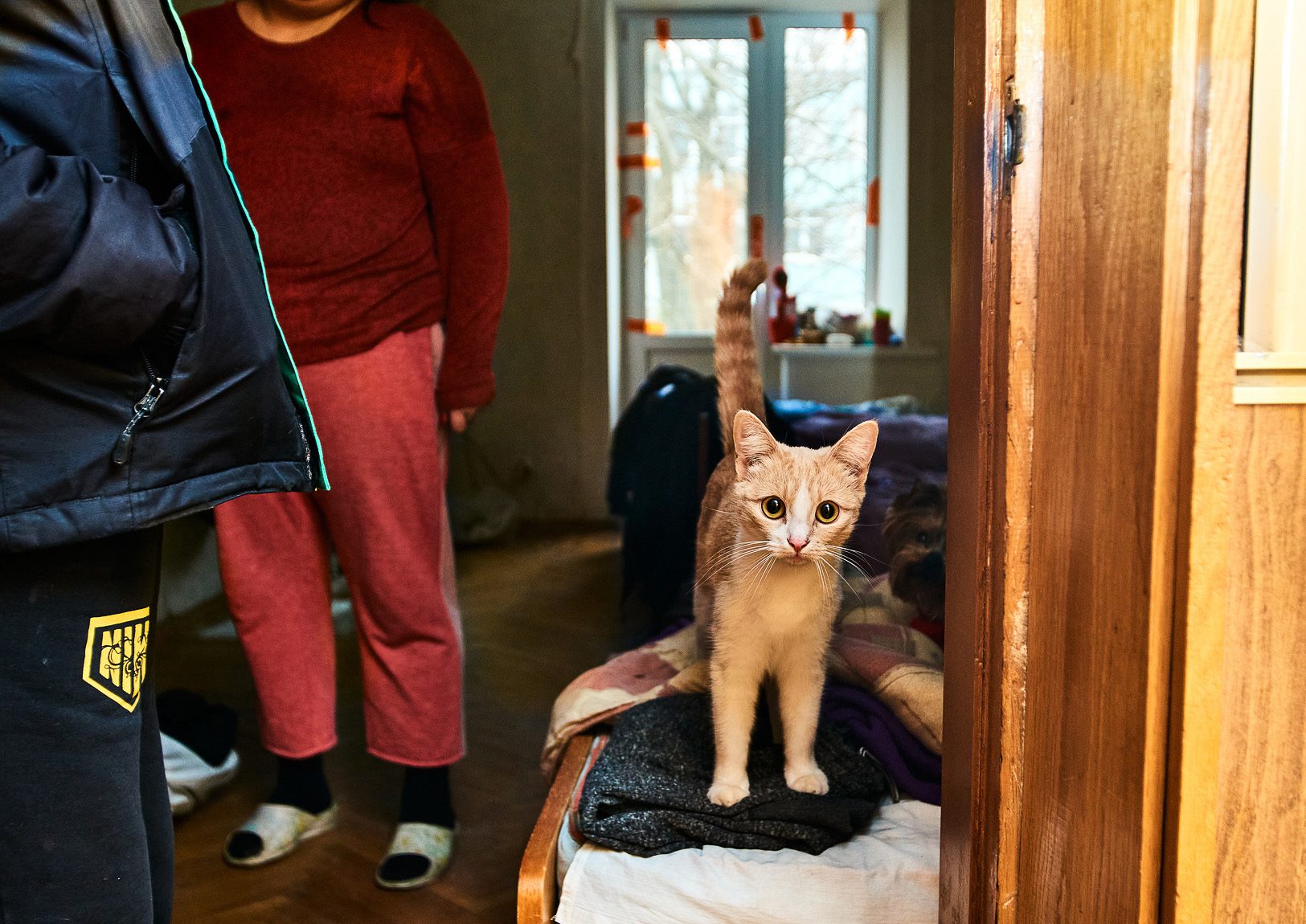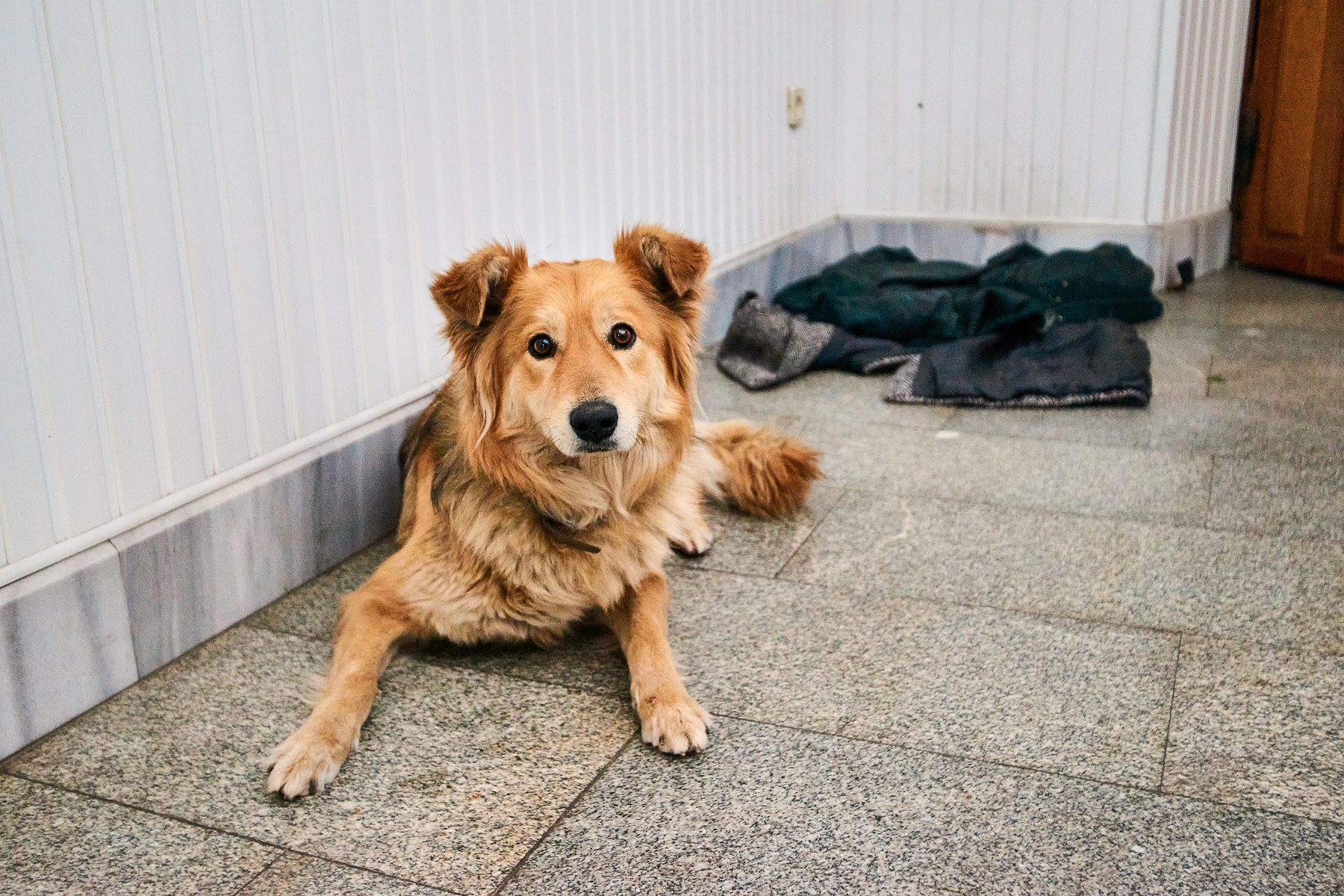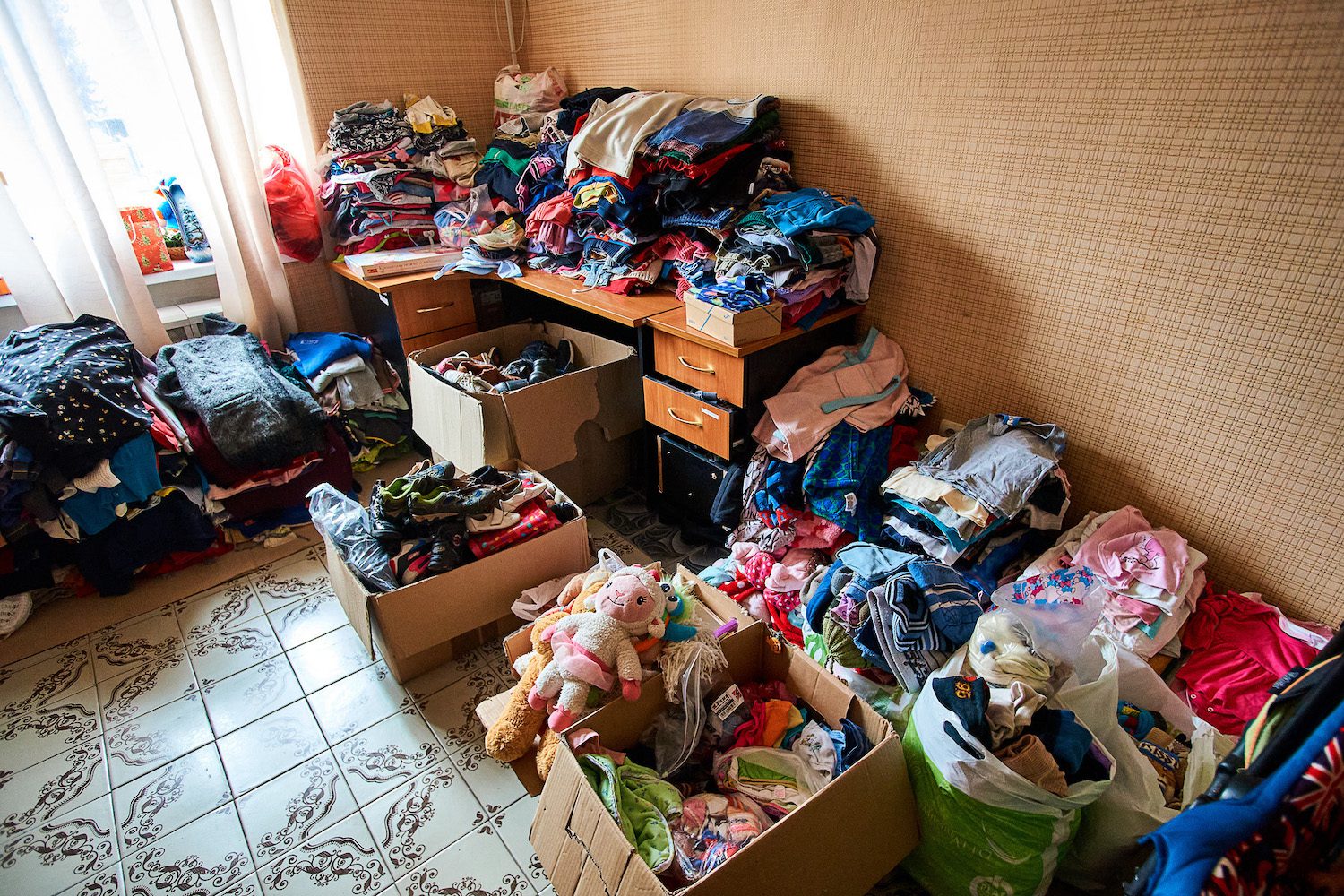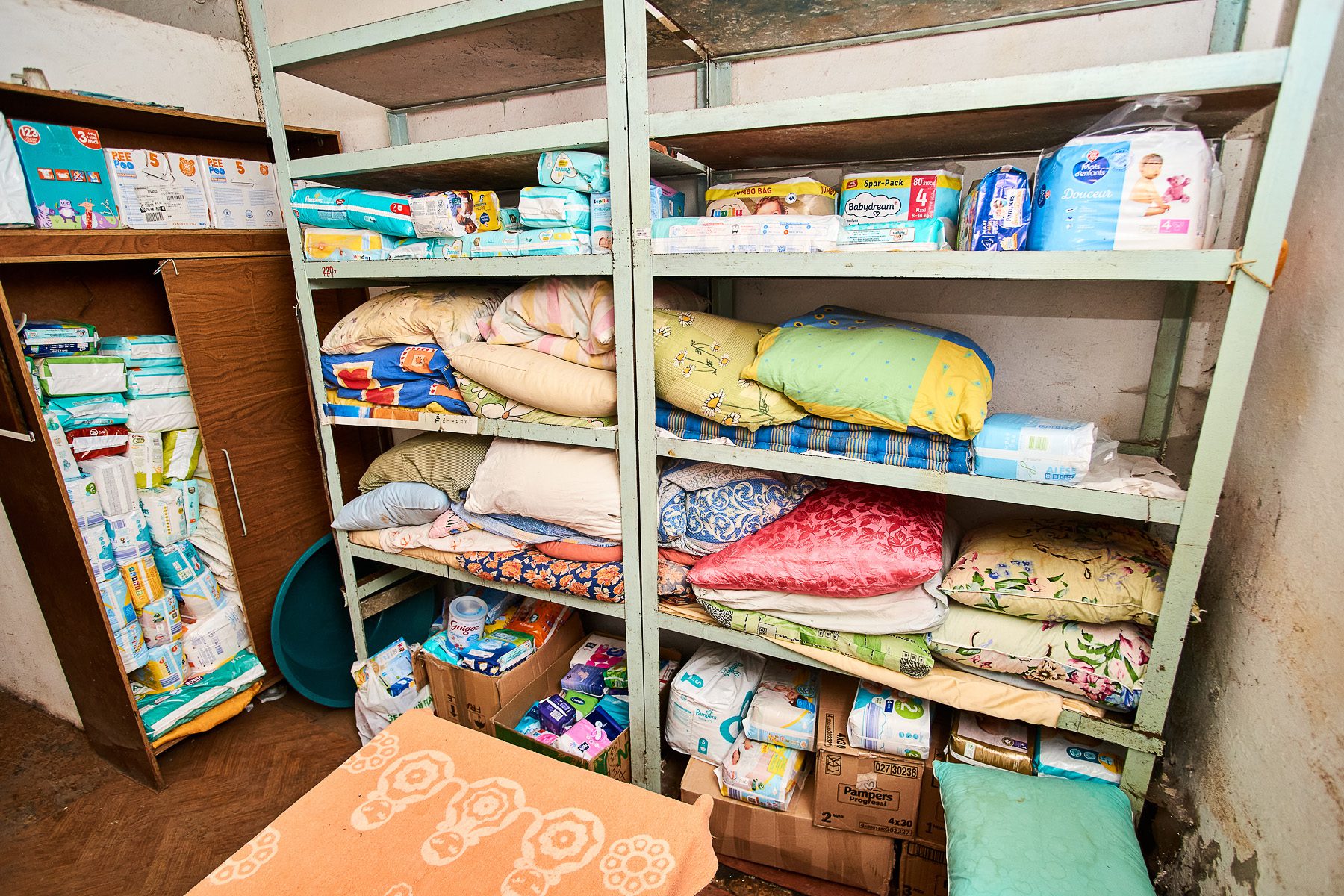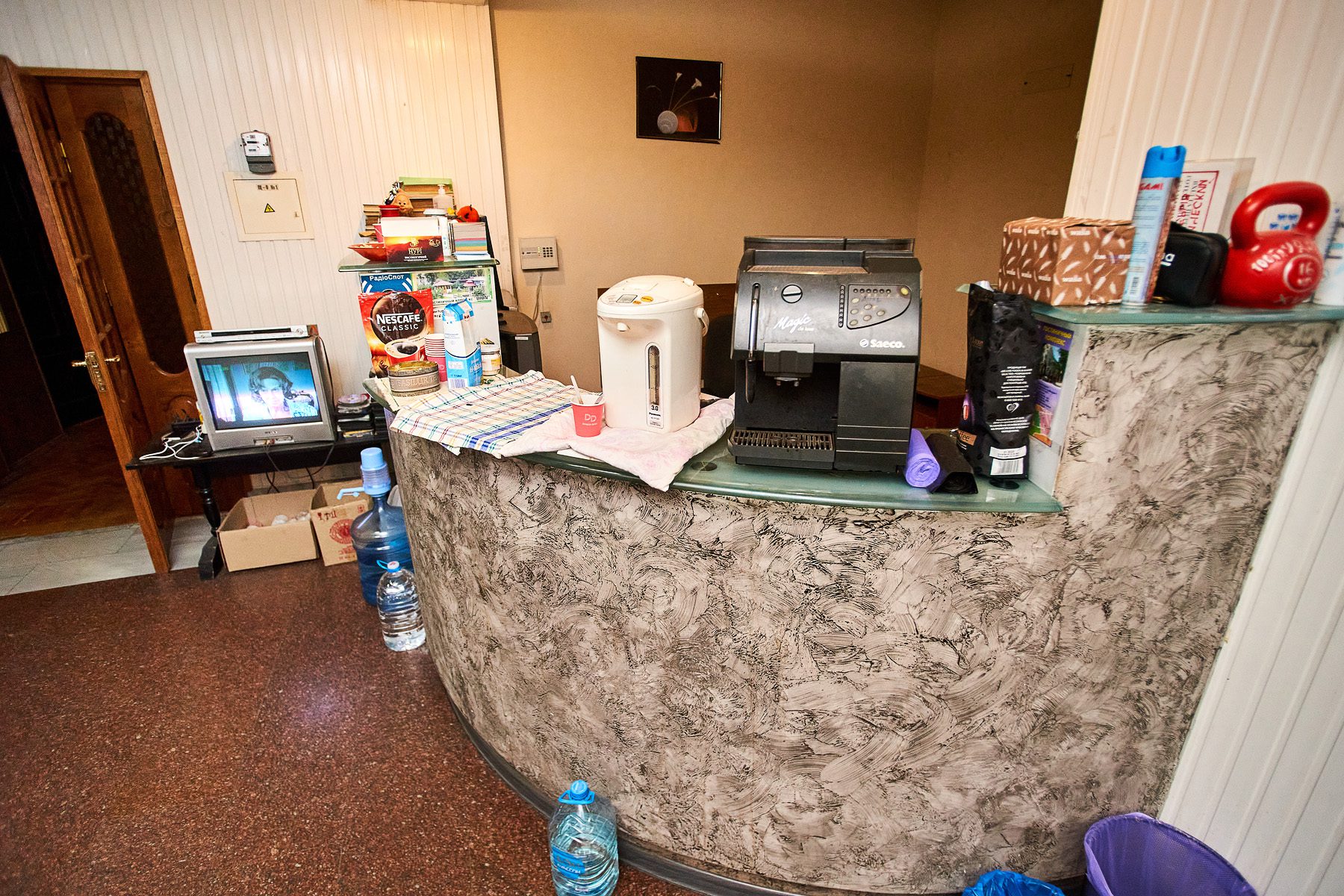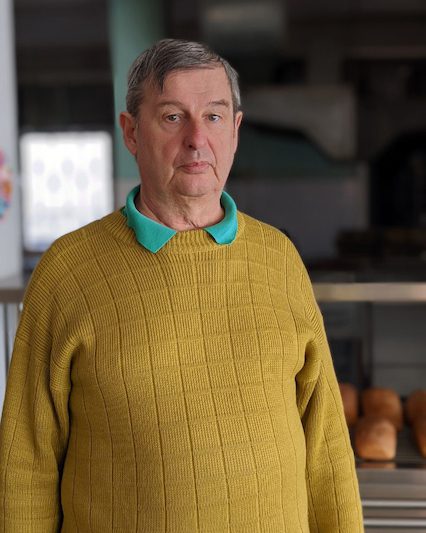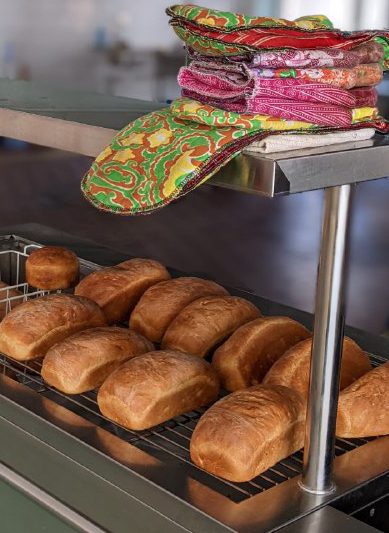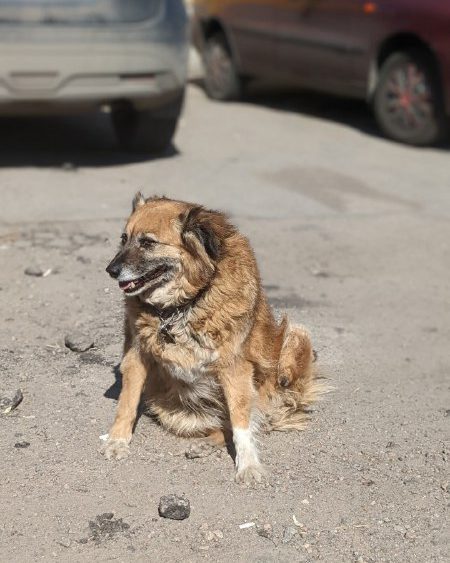President of Ukraine Volodymyr Zelensky has already said that the enemy is going to occupy as many cities in eastern Ukraine as possible. Zaporizhzhia is one of the industrial centers of the east, so the locals do not rule out that sooner or later they will have to fight off the occupiers in direct combat. However, now, while the city is more or less calm, citizens are actively helping each other and hosting those who were forced to leave home. Zaborona journalist Polina Vernygor visited her hometown and tells how Zaporizhzhia lives today.
At about 3 p.m., the train finally took me to Zaporizhzhia. I got out at the station, took a breath – and did not recognize my hometown. This trick is probably known to all the locals: when you come from conventional Lviv and take your first breath, you realize that you are at home. The fact is that usually the air in Zaporizhzhia is quite specific due to numerous factories. But I try to capture a painfully familiar and native smell, and there is none: most enterprises have been shut down since the beginning of the war.
-

Photo: Dmytro Kovtun / Zaborona
Zaporizhzhia is my hometown. Since the beginning of the war, I have been thinking every day that I might never see it the way I used to see it – with beautiful old houses, majestic Khortytsia Island and a life that seems to be in full swing in every corner of the city. After all, Zaporizhia is located in the east of Ukraine, where Russia is concentrating its troops right now. In addition, there are already many Russian-occupied settlements in the region, and therefore, the invaders are getting closer to my city.
Instead, the Zaporizhzhians themselves assure that the city will not surrender to the occupiers and that Zaporizhzhia is Ukraine, it can’t be otherwise. People’s sentiments are reinforced by actions: locals are actively joining the ranks of the Territorial Defense and the Armed Forces, preparing Molotov cocktails and helping the army.
People here are conscious- driving along the central avenue in the evening, you are unlikely to see at least one window with the lights on. The curfew begins here on Saturday evening and lasts until Monday morning. At this time, you are unlikely to meet someone on the street who does not follow the “stay at home and do not stick out” rule – except that from time to time single figures with dogs appear at the entrances, but they loom there for just a few minutes, and then return home .
The fact that Russian “liberators” are not expected here is evidenced by numerous posters with obscene messages to the invaders.
This time I came to Zaporizhzhia for working purpose. I wanted to collect stories in a volunteer center for evacuees from hot spots of Zaporizhzhia and Donetsk regions. Almost all my interlocutors said that they did not expect such a warm welcome from complete strangers. Indeed, many people in Zaporizhzhia today have changed their main job to volunteering. I spent a day with them to understand their motivation.
Bloom where you’re planted
We meet Artem Chernyavskyi and Khrystyna Nozhkina near the city center. Artem loads portion lunches from a Japanese food restaurant and bread into his car. Today we will go to deliver this to those in need. Before the war, the couple had an online store of mobile accessories. Now the store is not working, but its pages on social networks function as a communication platform for volunteering.
-

Artem and Khrystyna. Photo: Dmytro Kovtun / Zaborona
Artem says that his family didn’t even discuss the possibility of leaving Zaporizhzhia. On the first day of the war they decided to help and quickly got organized, found the right contacts.
“I was born here and I will die here. I said this phrase on the first day of the war and I keep repeating it,” says Khrystyna. ”Basically, it’s quiet here. We are useful here, so perhaps our mission in life is to help people in need at this time.”
In the first days of the war, Artem helped to dig sand for barricades at checkpoints in his Kommunarsky district. Initially, 15 people gathered there, but information about the initiative spread every hour, so the next day about 300 people worked at this point. Artem thought there were too many hands, and he actually had nothing to do there.
Then the couple posted on their Instagram stories that they are ready to help and are looking for opportunities. Subsequently, someone wrote to them that the military hospital needed help. First they collected money and delivered medicines, then started collecting things for the wounded soldiers. Soon the couple was given direct contact of the military and the guy and the girl began to cover their needs.
It is quite difficult to raise money for something very expensive, the volunteer admits. But through Instagram they find people who can help get the things they need.
“Ukrainians stand together. We did not expect this when we published the first inquiries on social networks. Many people want to help. We have a car, we are mobile, we can get to any district of the city quickly,” Artem explains.
Khrystyna is mainly responsible for communication in social networks. She monitors the local Telegram channels, responds to direct requests. Then the couple calls directly to those who are ready to donate things right away, or agrees with restaurants on the delivery of lunches, builds a route for the next day and leaves in the morning.
-

Photo: Polina Vernygor / Zaborona
At the same time, with the help of the army and the hospital, the store’s account began to receive requests for medicines from ordinary citizens. They are usually asked to find some drugs for diabetes or chronic diseases. Khrystyna orders the medicine online, however, she says not everything is available.
“Now there is a big problem with L-thyroxine or Euthyrox. It is simply not available in Zaporizhzhia, and when it is suddenly imported, pharmacies sell it many times more expensive. We are currently looking for someone who might be able to transport these drugs from Europe. Of course, we would deliver them to those who need it,” explains Khrystyna.
The money for all these needs are being mostly donated by Instagram subscribers. According to Artem, the largest income on their account was 15,000 hryvnias (500 USD) in one payment, made by a friend who started volunteering with them, but then decided to take the child out of the country. Strangers, including from Europe, donate a lot of money. But not all donations meet the requests of Artem and Khrystyna.
-

Photo: Dmytro Kovtun / Zaborona
Military, sweets and dentist
The first destination is the base where the military live. Today, they have given up the lunches that the couple regularly brings them. “Apparently someone else has already arrived with food,” says Artem. Instead, the soldiers asked Artem for a pack of instant coffee and some tea sweets.
We enter the well-guarded area without any problems: Artem’s car is already well known at the checkpoint. The car slowly drives through the territory, Artem calls someone to meet us. Later we stop, two young men in military uniform approach and greet us. For a few minutes Artem talked about something with them, and suddenly one of them approached Khrystyna and asked about her teeth.
It turned out that the last time the couple came, Khrystyna inadvertently remembered that she had a toothache. The military remembered that. Now the guy in the uniform spells the number of a good dentist who will “do everything well, just mention you got the number from me.”
When we leave the base, Khrystyna admits that it is very pleasant: when you help people, they try to help you in some way. And in general, it is great that there is an opportunity to build some friendly ties, which may remain after the war.
-

Photo: Dmytro Kovtun / Zaborona
Six cans of cucumbers for hundred people
Then we go to the social center. This is a hotel that has been converted into a temporary shelter for those fleeing the war. Mostly people rest here a few days after a dangerous trip from hot spots. But there are those who live here.
-

Photo: Dmytro Kovtun / Zaborona
The center was founded on February 28 by local entrepreneurs. About 100 people now live there. They are fed, provided with hygiene products and clothes, and even have birthday parties from time to time.
“Every day we are visited by many caring people, volunteers who help us with food, medicine and clothes. Here people can take hot showers and eat fresh hot food. Many people come with small children – for them there are various toys, pencils and felt-tip pens. And our volunteers also play with them,” says Dmytro Bilko, an employee of the center.
-

Dmytro Bilko. Photo: Dmytro Kovtun / Zaborona
On the ground floor, opposite the front door, children’s drawings hang. Dmytro explains that he once announced a drawing contest with a prize – chocolate bar for the best one. And then he handed out chocolates to everyone so that no one would feel offended. But in a conversation, he admits that he was most struck by the drawing of a 4-year-old boy, which the young artist called “Thoughts about the house.”
-

Photo: Dmytro Kovtun / Zaborona
In addition to Dmytro, four other people work at the center, and various volunteers join every day. Residents of the center also help – for example, women take turns preparing food for everyone, cleaning the area or playing with children.
Cooking food for 100 people is not an easy task. Those who prepare breakfast should wake up at 4 a.m. so that everyone can have breakfast at 8 a.m. I go into the kitchen, and there the women are cooking dinner in full swing. The today’s menu consists of soup, two types of cereals – buckwheat and wheat – and sausages. There are also pickled cucumbers, which require 6 cans at a time, so that everyone had one piece. Sometimes the residents of the center bake cakes, and from time to time local restaurants bring pizza there.
-

Photo: Dmytro Kovtun / Zaborona
In many rooms, IDPs live with their animals. There are a lot of dogs here. All of them behave politely and don’t bark during curfew, says Dmytro.
Dmytro himself worked as a builder before the war, and now he has become an assistant to the head of the center. He communicates closely with people who arrive, records all their needs and passes them on to the manager, who tries to solve the issues. Dmytro considers the story of one Mariupol child who came with her parents the most difficult moment for himself during the entire war.
“They brought a barefoot girl who could not be calmed down for a long time. She cried for several hours because she and her parents were driving on a road strewn with corpses. Some bodies were crushed by military equipment. Since the car was full, they were not able to remove the child from the window so that she could not see it. Then the parents asked us to leave the light on at night despite the light masking so that the girl would not be afraid. I feel sorry for her,” the man recalls.
Dmytro also oversees volunteer assistance, such as that provided by Artem and Khrystyna. Today we brought clothes and toys to the center, which were donated to volunteers by ordinary citizens, as well as 50 loaves of bread from local restaurants. Artem and Khrystyna come here every day – they are already well known by both employees and those who have lived here for a long time.
Bread and Atoshka dog
Our next point is Zaporizhzhya Professional Trade and Culinary Lyceum. When you cross the threshold of the educational building, you feel a strange mixture of smells of baking and paint. Due to the war, classes were suspended here, and taking advantage of the fact that there are no students now, the ground floor is being renovated.
Bread is being baked in the dining room, also located on the ground floor. According to the director of the Lyceum Viktor Lvov, this work is mainly being done by the teaching staff. Bread is sent to a military hospital for wounded soldiers or to checkpoints.
“We have been working since the first day of the war. One day we immediately realized that our mission is to organize food for those who protect us. Therefore, our bread is baked with care and kindness. The products for it are partly donated by volunteers and partly provided by a military hospital. Some of our employees raise money, so we buy something ourselves,” says Lvov.
-

Photo: Polina Vernygor / Zaborona -

Photo: Polina Vernygor / Zaborona
Every day the Lyceum receives an order for how many loaves of bread are needed, and based on this it plans its work. On average, says the director, they bake from 50 to 70 pieces per day.
We say goodbye to Viktor Lvov and finally he proudly shows the stand with the students’ achievements. There are awards for all tastes – from certificates of the Book of Records of Ukraine to sports cups: “I hope we will soon be allowed to resume studies, because it is very empty here without our students.”
The final destination is a military hospital. We are not allowed inside. A soldier approaches the car and waves to Artem. They talk about something; the soldier takes a box of bread and goes to the gate. A dog without a hind paw runs behind him, cheerfully waving his tail.
“This is Atoshka,” says Artem. “Like Toshka, only mentioning the ATO (anti-terrorist operation). We were told that he was brought here in 2014 from Donbas. Apparently, our military likes to joke. And they love animals.”
“May they stay alive,” adds Khrystyna.
-

Photo: Polina Vernygor / Zaborona
You can help the refugee reception center by donating to card account: 4441114465274593
Volunteers Artem and Khrystyna can be helped by donating to card accounts: PrivatBank: 4149439043326960 Monobank: 5375411504712469

